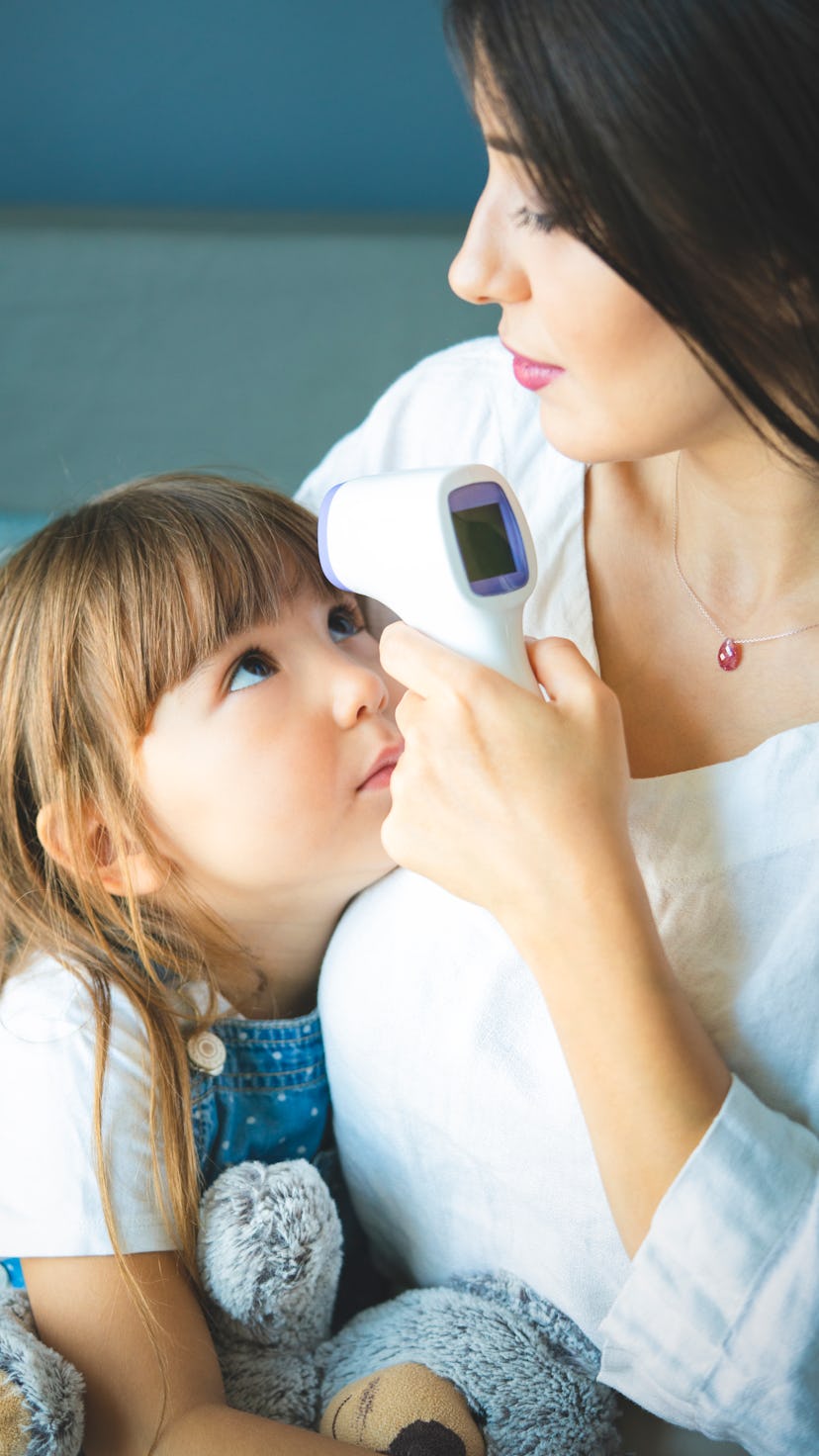Covid

Omicron Symptoms In Kids & How To Treat Them
The good news is: their symptoms are super mild. (You may not even notice.)
StockPlanets/E+/Getty Images
Parents have been on the lookout for covid symptoms in their kids for nearly two full years. With every new variant comes a new wave of worry. The symptoms of omicron in kids can mimic a typical cold, but should still be taken seriously and treated accordingly.
Dobrila Vignjevic/E+/Getty Images
Most kids experience mild symptoms with omicron; you might even mistake it for a cold or allergies. The vast majority of kids will be just fine, but the CDC reports that kids — especially if unvaccinated — are still at some risk for complications and hospitalization, so it’s important to keep a close eye on symptoms.
Radomir Jovanovic/E+/Getty Images
Kids with omicron can run a fever. Use cool compresses to help keep your child comfortable, offer plenty of liquids to keep them hydrated, and give fever reducing medications as indicated by their doctor.
Olesia Feketa / EyeEm/EyeEm/Getty Images
Unfortunately, omicron can make kids feel nauseous or lose their sense of taste and smell. It can be hard to cope with, but you should still encourage them to eat and drink their favorite foods to keep up their strength.
Jozef Polc / 500px/500Px Plus/Getty Images
Fatigue is one of the most common symptoms of covid, and the omicron variant is no exception. Encourage your kids to rest as much as possible (and snuggle if they need it, of course) to help them get through the illness.
And remember, omicron may be more contagious, but our tools for preventing its spread still work: Get vaccinated, wear a mask, and keep your distance indoors. “The same methodology still applies," Vivek Cherian, M.D., a Chicago-based internal medicine physician at Amita Health, told Romper.
bojanstory/E+/Getty Images